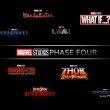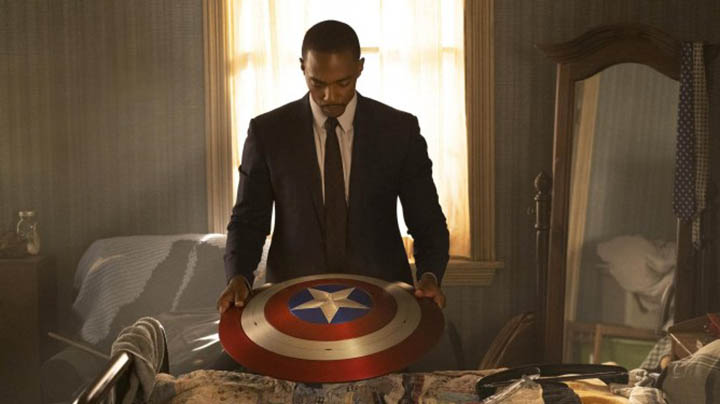Janine Shuman
campus editor
Marvel’s “The Falcon and The Winter Soldier” debut showcases the revered heroes in a humanizing light with its mental health themes, illustrating how even the most potent heroes haul around emotional baggage.
The series opens with a silent post- “Avengers: Endgame” Sam Wilson hesitantly sealing away the shield given to him by Steve Rogers, who adamantly assured a reluctant Wilson that he was best fit for the role of the new Captain America, something Marvel fans were thrilled to see.
Wilson’s taking the mantle as Captain America was exciting as Marvel expanded on having more prominent minority representation in the franchise.
The silence is quickly broken as Wilson sets off on a mission appointed by the U.S. military. In a not-so-subtle fashion, he dives off of the plane, revealing his Falcon wings, and sets off to save a kidnapped military asset.
Don Cheadle’s character James Rhode makes a cameo appearance in which he urges Wilson to not surrender Captain America’s shield to the Smithsonian. The series spends time commemorating Steve Rogers with shots of Wilson emotionally observing his exhibit in admiration.
These fragments serve well to long-time Marvel fans who aren’t ready to let go of the characters they’ve grown up with for over a decade.
Despite the show revolving around the Falcon and the Winter Soldier’s relationship, the pair never meet in the first episode. Rather, the episode relies on answering fan questions and introducing the hero’s current situation. While it would have been nice to have them meet, the show did a great job at developing the individual backstories.
Perhaps the greatest arc in the series is the portrayal of the characters’ struggles,
which gives viewers a sense of relatability, something a lot of superhero media tend to lack. From a psychological standpoint, the series does a phenomenal job displaying Barnes’

Bucky Barnes, played by Sebastian Stan, goes to court-mandated therapy after being brainwashed by the extremist organization Hydra.
trauma associated with his dark past.
Bucky Barnes is introduced to the audience sitting vulnerably on a couch, conversing with his therapist who seems to take more of a “tough-love” approach with him.
In his hand is a list of amends he believes will help him overcome his extreme pent-up guilt from his days as a brainwashed Hydra weapon.
Barnes grows frustrated with his therapist as she tackles his deep-rooted issues, revealing he has been ignoring all social contact, including Wilson’s attempts at reconvening.
Although Barnes seems to struggle with a form of post-traumatic stress disorder throughout the series, Marvel does a good job at not glossing over the fact that no individual is immune to mental health struggles when enduring extreme hardships.
It has been done before with movies such as “Iron Man 3,” where Tony Stark suffered from anxiety and PTSD.
Aside from the mental health themes, the series reveals Sam and his family are dealing with significant financial hardship. Despite being a prominent figure in the universe, Wilson does not make money from his efforts, and he and his sister are unable to obtain a loan in an attempt to avoid selling their family boat and tainting their family legacy.
The ending of this episode is where Marvel fans can end up feeling immensely disappointed. The episode closes with the announcement of a new Captain America by the same guy who assured Wilson he did the right thing by giving up the shield.
The new face of Captain America is shown on screen waving to the crowd in a new suit and shield, disappointing fans who anticipated Wilson’s role since 2019.

Marvel’s plan for theatrical and television releases for the next few years was revealed July 20, 2019 at San Diego Comic-Con. The next film to be released is “Black Widow.”
Marvel Studios begins phase four rollout
Despite its long run, the franchise has no end in sight and dedicated fans continue expressing their support.

